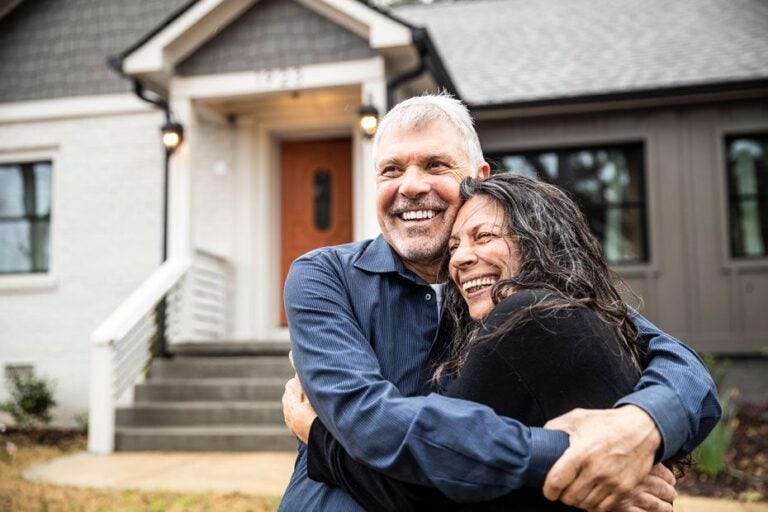Key Takeaways
- Heirs are not personally responsible for repaying a reverse mortgage; the loan is settled using the value of the home itself.
- When the borrower passes away, heirs may choose to sell the home, repay the loan, or allow the lender to sell the property if it is worth less than the balance.
- Staying in touch with the loan servicer and seeking guidance from a HUD-approved counselor could help heirs make informed decisions and avoid unnecessary stress.
It’s one of the first questions many people ask about reverse mortgages: “Are my heirs responsible for my reverse mortgage debt?” It’s an understandable concern. No one wants to leave their family with debt, and reverse mortgages have had a bit of an image problem over the years—often due to misunderstanding how these loans actually work.
The truth is, a reverse mortgage loan doesn’t saddle heirs with unexpected debt or take the home out from under them, but the estate does bear some responsibilities. Heirs do have decisions to make when a borrower passes away and understanding those steps may help families plan with confidence rather than fear.
In this article, we will clarify how reverse mortgage loans work, explain the responsibilities heirs face, and explore the protections built into modern reverse mortgages. Armed with this information, families could make more informed decisions and avoid unnecessary stress when the last borrower passes away.
Do heirs have to pay reverse mortgage debt?
The short answer: no, heirs are not personally responsible for reverse mortgage debt.
When a borrower with a reverse mortgage passes away, the loan balance becomes due and payable. However, repayment is made from the home’s equity, not the heirs’ personal assets or other property. The borrower’s estate or heirs can decide how to handle the remaining loan balance, but they will never be asked to pay out of pocket beyond the home’s value.
Here’s why: Many reverse mortgages, specifically Home Equity Conversion Mortgages(HECMs), insured by the Federal Housing Administration (FHA), are non-recourse loans. A non-recourse loan means the lender can only recover the amount owed by selling the property securing the loan. If the reverse mortgage balance exceeds the home’s current appraised value, the lender cannot pursue the heirs or estate for the difference. Instead, FHA insurance covers any shortfall, protecting the borrower’s estate and heirs from additional debt.
→ To learn more about how these loans function, see our detailed guide on How reverse mortgages work.
What happens when the last reverse mortgage borrower dies?
When the last borrower on a reverse mortgage loan dies, the loan balance becomes due and must be repaid. This doesn’t mean the lender immediately takes ownership of the home or that heirs are suddenly responsible for paying the debt. Instead, it starts a process that gives the estate and heirs time to decide what to do next. Here is how the process generally proceeds:
A due and payable notice is sent from the lender
After the borrower’s death, the reverse mortgage lender sends a due and payable notice to the estate and heirs. This letter explains:
- The amount owed on the loan, including interest and fees.
- The options available for repaying the debt.
- The timeline for responding—usually within 30 days.
Heirs are encouraged to contact the lender right away to discuss their intentions and, if needed, request more time. Lenders may grant extensions of up to six months, as long as the estate or heirs are actively working towards selling or refinancing the property.
Heirs choose how to proceed
Heirs generally have three repayment options:
- Sell the home: The most common option is to sell the property, use the proceeds to pay off the reverse mortgage balance, and keep any remaining equity. The lender forecloses only if the home is not sold or the loan is not repaid.
- Keep the home: Heirs can choose to keep the home by paying off the loan balance—either in cash, through the borrower’s estate, or by refinancing into a traditional mortgage.
- Walk away from the property: If the reverse mortgage is a non-recourse loan, heirs may allow the lender to foreclose if the home’s market value is less than the mortgage value. In this case, heirs owe nothing beyond the home’s value.
Whatever option the family chooses, staying in contact with the loan servicer may help avoid confusion and ensure deadlines are met.
To learn more, please visit the CFPB’s Reverse Mortgage: A Discussion Guide
What about a surviving non-borrowing spouse?
In some cases, an eligible non-borrowing spouse may not have been listed as a borrower on the reverse mortgage. Federal regulations now allow an eligible non-borrowing spouse to continue living in the property after the borrower’s death—provided they continue to meet the loan’s obligations.
To stay in the home, a non-borrowing spouse must:
- Continue to live in the property as their principal residence.
- Keep property taxes, homeowners insurance, other fees, and maintenance up to date.
- Notify the lender of the borrower’s death and their intention to stay.
If these requirements are met, the lender cannot initiate foreclosure proceedings simply because the borrower died. However, if the homeowner does not meet these obligations, then the loan will become due and payable.
Frequently asked questions about heirs and reverse mortgages
Here are a few more often-asked questions related to reverse mortgages and problems heirs often face.
Are children responsible for their parents’ reverse mortgage?
No. Children or other heirs are not personally responsible for paying off their parents’ reverse mortgage debt. The loan balance is repaid from the value of the home—not from the heirs’ personal funds or assets. If the home sells for more than what’s owed, the heirs keep the remaining equity. If it sells for less, Federal Housing Administration (FHA) insurance covers the shortfall.
Who owns the house with a reverse mortgage?
The homeowner retains full ownership of the property during their lifetime, as long as they continue to meet the terms of the loan. A reverse mortgage is a loan secured by the home, just like a traditional mortgage. As long as the borrower meets the loan obligations (living in the home, keeping up with taxes, insurance, and maintenance), the lender does not take control or ownership of the property.
What happens if you inherit a house with a reverse mortgage?
If you inherit a home with a reverse mortgage, the loan balance becomes due and payable upon the last borrower’s death. You’ll receive a notice from the lender outlining your options:
- Sell the home and use the proceeds to pay off the loan
- Keep the home by paying off the reverse mortgage balance, either in cash or through refinancing.
- Decline the property if the home’s value is less than the mortgage balance, allowing the lender to sell it without further obligation.
Heirs typically have six months to arrange repayment or sale, with possible extensions.
What is the biggest reverse mortgage problem for heirs?
The biggest issue heirs face is often a lack of understanding about loan obligations. Borrowers must continue to pay property taxes, homeowners insurance, and maintenance costs. Failing to do so can cause the loan to become due prematurely and may trigger foreclosure proceedings.
Modern reverse mortgages, especially FHA-insured HECMs, include protections like mandatory counseling from the Housing and Urban Development (HUD), clear disclosures, and non-recourse loan features which may help borrowers and their families avoid surprises later on.
The bottom line: Heirs are not responsible for reverse mortgage debt
A reverse mortgage loan can be a useful financial tool for older homeowners to access their home equity while staying in their homes. It’s natural to worry about leaving debt behind, but heirs are not personally responsible for repaying a reverse mortgage. The loan is secured by the home itself, and when it becomes due, the estate or heirs have clear options to repay or settle the loan after the borrower passes away.
The right to remain in the home is contingent on paying property taxes and homeowner’s insurance, maintaining the home, and complying with the loan terms.
Understanding how reverse mortgage repayment works, including the protections offered by FHA insurance and HUD regulations, may help replace uncertainty with confidence. Communication is key: staying in contact with the loan servicer and seeking guidance from a HUD-approved counselor can help make the process smoother for everyone involved.
If you’re considering a reverse mortgage, learn how it fits into your long-term goals. Use our reverse mortgage calculator to estimate how much the loan fits into your overall retirement and estate planning goals.



